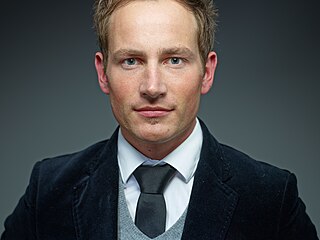As she looked over the city of Xerconia, seeing all the way out to the desert that surrounded it, she realised this would probably be the last time she ever beheld this vista again.
She returned to her desk to finish writing a note to her successor - this was a tradition, although she'd never had one from her own predecessor who was carted off to jail virtually the moment she was done swearing her oath.
Could this Autenberg guy even read? Was there any point writing anything too complex for him?
She sighed, dreading what the President-elect was going to do to this office. Would there be livestock roaming around? Regular hoe-downs? Would pictures of national heroes like Traiyan Silviu be torn down and replaced by pictures of country music stars, or "The World's Muddiest Pig"?
She glanced over at what she'd written so far.
"Dear Jaagen,
It's not my place to tell you what you should and shouldn't do in office. That's your prerogative.
Instead I urge you never to lose sight of the great privilege it is to lead our people. And remember that just as world peace hinges on Radiatia, Radiatia hinges on you.
It's therefore..."
She threw it out. It was far too complex. The President-elect probably didn't even know what the word "prerogative" meant.
Finally she shrugged her shoulders and wrote, in big bold print,
"Good luck, Jaagen. From Angela Pavlovic.", signed off with a large smiley face drawing.
That's probably more his level, She thought with a mix of sadness and humour, leaving the note on what would soon be his desk.
The last few days had been a sense of grief mixed with relief, mixed with bitter disappointment - afterall, she was the first sitting President who had been defeated in an election. Everyone, even the disastrous Keldon Silviu, had managed a second term. She was a one-term wonder, and it hadn't even been a full one-term.
So much for being an inspiration for young girls to look up to.
"Yeah, you can be President... if you become the running mate of a crook and are willing to be a placeholder President until some redneck takes over from you."
"Madam President, ELITE ONE is waiting for you."
Angela nodded, noticing the crowd gathering below in Federation Square.
"Just give me two minutes," She said.
Her final act as President was to sign a few pardons.
She flicked through them. There was a banker in Exegrad who had accidentally found himself prosecuted for the fact that the bank wasn't paying its taxes, despite him being unaware. Not his fault, she signed his pardon.
A man in Miitlania had decided to appeal to the federal government to commute his death sentence for running over someone's son. Angela signed the pardon.
A woman in Diifgrao was being prosecuted for failing to pay her debts after a messy divorce saw her sued for breaching a marriage contract. Angela shook her head in disbelief, and signed the pardon.
Finally she saw the one she'd been looking for.
Gregori Maynard Fyoderov.
Her pen hovered over the dotted line. She had the power to see her predecessor released from prison immediately, to be forgiven for using state apparatus to kill his ex-wife, to go from criminal to elder statesman.
She took a deep breath, inking the first part of her signature, then stopped.
She looked out at the crowd below, at the city beyond and the desert beyond that. She saw a flutter of black and gold.
And finally she tore the form in half.
"Go fuck yourself, Gregori. Rot in hell." She murmured as she left Level 101 for the last time ever.
The crowds were roaring, behind the bullet proof glass, as President Pavlovic sat next to President-elect Jaagen Autenberg, who tipped his hat warmly at her.
He pulled a hip flask out of his pocket.
"Fancy a swig?" He asked her.
"Premier," This was the last time he'd ever be called 'Premier'. "It's not even midday."
"Ayup, that's why I'm drinkin' whiskey not vodka," Said Autenberg as if this settled the matter.
Angela's smile became awfully fixed as she glanced awkwardly towards Vice President Vladimir Perry who was deep in conversation with Vice President-elect Steven McCarthy.
The two were smiling here, but it was well known they were polar opposites politically - Vice President Perry a notorious right-libertarian, Senator McCarthy a notorious socialist. And yet they were chatting away like old friends, making Angela realise that Radiatia truly was a special country.
Chief Justice Tobias Kneib took the stage and Angela was reminded of when she took the Vice Presidential oath eight years previously. She'd never expected she'd ascend to the Presidency, and she suspected that Steven McCarthy had better be prepared - especially given Autenberg's age and, well, inability to take care of his health.
Chief Justice Kneib faced Steven McCarthy.
"Senator Steven McCarthy, please repeat after me: I, Steven McCarthy affirm my allegiance to the Radiatian people and the Radiatian constitution."
"I, Steven McCarthy swear my allegiance to the Radiatian people and the Radiatian constitution."
"I swear I will do all in my power to defend the constitution, to defend freedom and to defend our democracy."
"I swear I will do all in my power to defend the constitution, to defend freedom and to defend our democracy."
"And I will execute to the best of my ability the duties of the office that I have been appointed to."
"And I will execute to the best of my ability the duties of the office that I have been appointed to."
"Steven McCarthy, by the power invested in my by the Radiatian Constitution, I hereby declare you to be the Vice President of the Radiatian Federation."
There was a cheer amongst the crowd - who Angela noticed were a lot more, well, redneck than usual - and the new Vice President smiled, waved, and shook hands with everyone else on stage.
Jaagen Autenberg took one last sip of whiskey and muttered, "Well this is me. Wish me luck Miss President."
Angela smiled politely. Silently she was terrified the future of the Radiatian Federation.
The Chief Justice, not a tall man, towered over the diminutive old man from Diatara.
"Premier Jaagen Autenberg, please repeat after me.
"I, Jaagen Autenberg swear my allegiance to the Radiatian people and the Radiatian constitution."
"I, Jaagen Autenberg, do be swearin' me allegiance to the Radiatian people an' that there Radiatian constitution."
"I swear I will do all in my power to defend the constitution,"
"I swear I'll do I dang well can to defend the constitution,"
"...to defend and protect our democracy,"
"...ter defend an' protect our democracy, ayup,"
"...and to defend, promote and protect our national values of individualism and efficiency during my time in office as President of the Radiatian Federation."
"...an' to defend, promote, protect... dang it what was the next bit? Somethin' about protecting individuals efficiently... while I'm in office as President of the Radiatian Federation. Yee-haa!"
Tobias Kneib paused for a moment, shrugged and smiled. "Congratulations... I hereby declare you... President Jaagen Autenberg!"
There was a 21 gun salute, although it was clear that far more than 21 guns were being fired into the air. Several northerners had clearly come and brought their shotguns with them, and were firing them into the air too. There was a tremendous cheer from the crowd. Hundreds of cowboy hats flew into the air, and Angela Pavlovic swore she also saw someone throw a pig into the air too.
Jaagen Autenberg turned to her and shook her first by the hand (with his disturbingly strong grip) and then embraced her, kissing her on the cheek.
"Congratulations, President Autenberg." Said Angela.
"Thank you, Miss," Said the new President. "And thank ye for yer service to our country."
Finally it was time for President Autenberg's inauguration address. He walked up to the lectern and faced the crowds, the cameras, the millions of people here and across the world and began to speak:
"Ugh....
"Any questions?"






